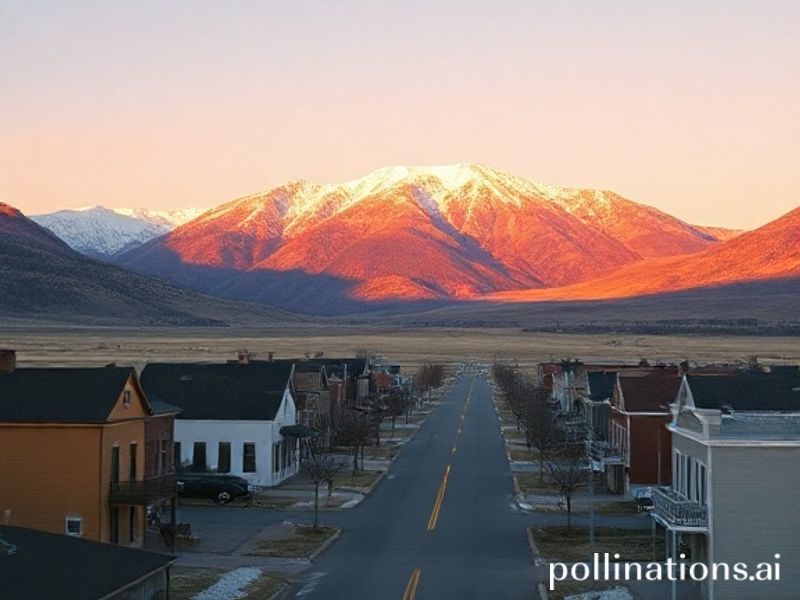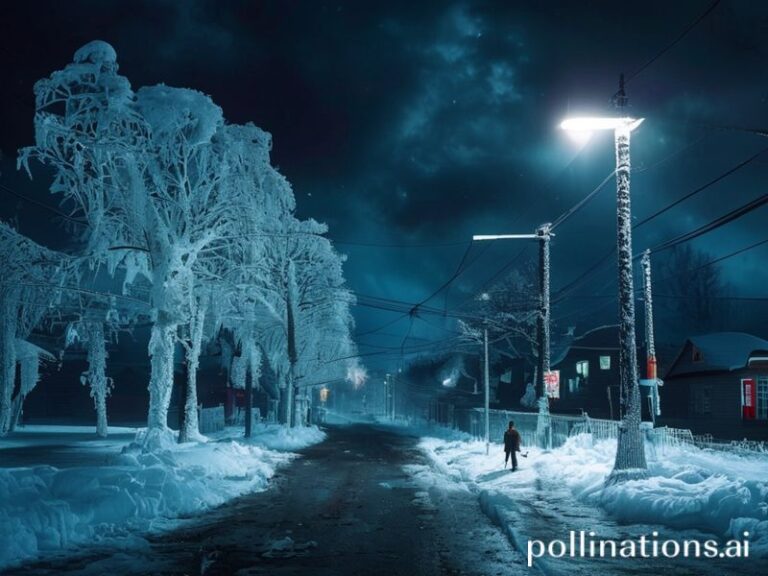South Park: How a Crude Colorado Cartoon Became the World’s Most Effective Diplomatic Weapon
South Park: The Little Colorado Town That Weaponized Global Schadenfreude
By Dave’s Locker Foreign Desk
In a world where diplomats still pretend that “deep concern” is a policy and billion-dollar summits produce press releases nobody reads, four construction-paper children in a fictional backwater have become the de-facto United Nations of satire. South Park, Colorado—population: whatever Trey Parker and Matt Stone decide—is now the only jurisdiction that can slap a Chinese censorship app, the Saudi royal family, and the European Parliament on the same 22-minute docket and still finish in time for Cheesy Poofs. If that sounds like hyperbole, consider that when the show depicted Winnie-the-Pooh as a honey-addled Xi Jinping look-alike, Beijing memory-holed every mention of South Park from the Chinese internet faster than you can say “Phase One Trade Deal.” The People’s Republic has nuclear submarines, facial-recognition pigeons, and a social-credit algorithm that knows if you jaywalk, yet it was brought to heel by a cartoon fourth-grader in an orange hoodie.
Elsewhere, the show’s influence has moved from dorm-room stoner cult to soft-power irritant. In Russia, the Orthodox Church cited a 2021 episode—where Vladimir Putin rides a bear shirtless into a TGI Fridays—as evidence of “foreign spiritual aggression.” In the same week, the Kremlin issued a formal diplomatic protest and simultaneously pirated the episode for prime-time state television, thereby monetizing the very outrage it condemned. The circle of modern geopolitics is complete: everyone’s angry, everyone’s watching, and the ad revenue just bought Trey another ski chalet.
Across the Atlantic, the European Commission has begun citing South Park in white papers on disinformation—as both symptom and cure. Officials in Brussels who once drafted 400-page regulations on cabbage curvature now earnestly quote “Member Berries” to explain nostalgia populism. Meanwhile, the French culture minister publicly denounced the show as “cultural fast food,” a phrase that promptly trended on French Twitter alongside clips of Cartman singing “O Holy Night” in a fedora. In other words, South Park has achieved the rarest of global feats: making the French admit they consume American products.
The series’ true export, however, isn’t crude language or Christmas poo; it’s the industrialized shrug. From Lagos to Lahore, viewers recognize the shrug: that practiced, world-weary gesture when institutions fail, hypocrisy reigns, and the only rational response is to laugh before the next disaster notification pings. In Turkey, where President Erdoğan once sued a German comedian for a poem, South Park’s depiction of him as a “wandering dictator in a bear costume” was met with weary resignation instead of lawsuits; the courts simply declared the episode “untranslateable.” Bureaucratic surrender is the sincerest form of flattery.
Financially, the show has quietly become a case study in stealth globalization. While Netflix shells out nine-figure checks for Korean squid games and Spanish heists, South Park’s parent company monetizes via a website that still looks like it was coded in 2003, selling $14.99 all-access passes to viewers in 190 countries. The profits, reportedly north of a billion dollars, are routed through Dutch tax shelters with the elegance of Randy Marsh laundering money through a weed farm. International tax law, meet member berries.
And yet, for all its planetary reach, South Park remains stubbornly provincial—proof that you don’t need to leave your backyard to set the world on fire. The boys never study abroad, never learn Mandarin, and still think Kyoto is a brand of sushi. Their foreign policy is essentially yelling “Dude, that’s wrong” until someone explodes. Somehow that’s more effective than most summits.
So when historians write the annals of early-21st-century soft power, wedged between TikTok diplomacy and Elon Musk’s Twitter hostage videos, they’ll note the odd footnote: a tiny Colorado town, animated on Mac desktops, that taught the globe the only three languages we still share—irony, profanity, and the resigned giggle. The lesson? If you want to speak to the world, first learn to laugh at it. Preferably in syndication.







